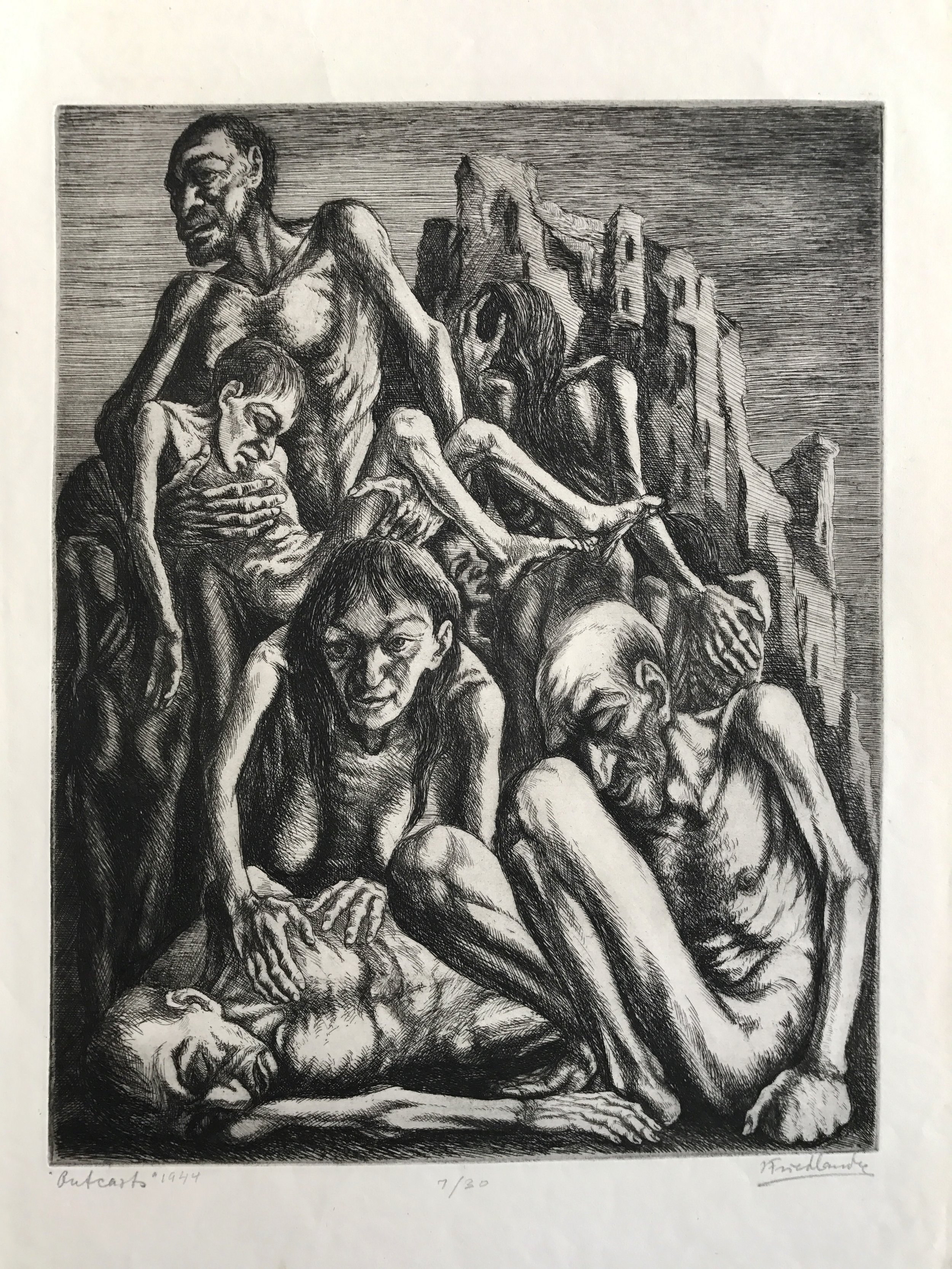MY FATHER'S EARLY YEARS AS A REFUGEE: ESCAPING POGROMS IN UKRAINE, 1919-1923
My father was born in 1918 in Kitaigorod, a Jewish village not far from Kiev in Ukraine. His family was, by shtetl standards, wealthy; they owned the general store in town, lived in a two story wood-frame house, and in their youth my grandmother and her sisters regularly rode horses.
In 1919 two pogroms came to town, the second more violent than the first. During the second pogrom, my grandmother Elka held her only child, my father, behind heavy curtains in the kitchen while her own mother was shot and killed in the next room in front of her other children, two of whom were also shot but survived. For decades I've imagined the horror Elka went through, hearing what she heard and hoping her son wouldn't cry out and be discovered, knowing that if he did they'd be killed. The town was ransacked, possessions were looted or destroyed, and extended family members and townspeople were murdered and gravely injured. According to an oral account given by one of my grandmother's sisters about 25 years ago, when dawn arrived the following morning hundreds of corpses were lying in the streets. They were buried in unidentified mass graves, the women in one area and the men in another.
My grandparents knew the only option was to flee. They were only 21 years old, young and scared and with a toddler. My grandmother was friendly with a young Gentile woman in the next town, and thinking they wouldn't make it, she asked her friend if she would take my father and raise him as her own son. The woman said yes she would, but a child should be with his mother. My grandmother agreed, and she, my grandfather, and their 15-month-old son set out on a multi-year voyage that took them across eastern Europe, much of it by foot. My father's brother was born en route in Romania. I don't know the details, but I imagine my grandparents stopped in various places and lived and worked long enough to get enough money to move on to the next destination. That part of the history has been lost. But they finally made it to Constantinople before getting passage to the United States, where some relatives had already established themselves. They arrived at Ellis Island in 1923. My father was 5 years old and didn't speak a word of English.
Once here, my grandparents established a successful dry-goods business that ended up thriving for decades, and by 1941 my father had graduated from NYU's School of Architecture. I have the medal he was awarded for best draughtsman in his class. He served for several years in the Navy, built air bases in the Caribbean during the Second World War, and went on to a fulfilling career building skyscrapers in New York City. He married my mother, had two children, moved to the suburbs and lived a long and fruitful life. Pretty much the definition of the American Dream.
Many families have gone through worse trauma than mine and many are going through unimaginable terror right this moment as I sit in my comfortable book-lined home office looking out at a serene New England landscape. My family's experiences, so profound on a personal level, are but a drop in the bucket of the American experience. Though I fear otherwise, I can only hope that the present bleak historical moment will be overcome and sanity and long-tested American values will eventually prevail. I'm not an optimist when it comes to human affairs, but that doesn't mean I can't be hopeful.
"Outcasts", 1944. An etching by my great-uncle Isaac Friedlander (born Latvia 1890, died NYC 1968).
